Before you go on your next grocery shopping trip, consider heart-healthy options for your meals.
February is National Heart Month — so what better time to put a little extra effort into changing your diet and focusing more on the health of your heart?
Heart disease is the leading cause of death in the United States, according to the Centers for Disease Control and Prevention.
ADD THESE HEART-HEALTHY FOODS RECOMMENDED BY EXPERTS TO YOUR GROCERY LIST
Spend time learning more about your heart and begin habits to continue throughout the year for an overall healthier lifestyle.
Here are a list of heart healthy foods to keep in your fridge or pantry.
- Dark leafy greens
- Olive oil
- Avocados
- Berries
- Beans
- Salmon
- Whole grains
- Walnuts
- Flaxseed
- Grapes/grape juice
- Papaya
- Dark chocolate
- Almonds
- Potatoes
- Pomegranates
1. Dark leafy greens
Dark leafy greens include veggies like spinach, kale and collard greens.
Isa Kujawski, MPH, RDN, founder of Mea Nutrition LLC, says consuming these vegetables helps to protect you against cardiovascular disease because they’re packed with nutrients.
Dark leafy greens are high in fiber and micronutrients, which help to keep your heart healthy.
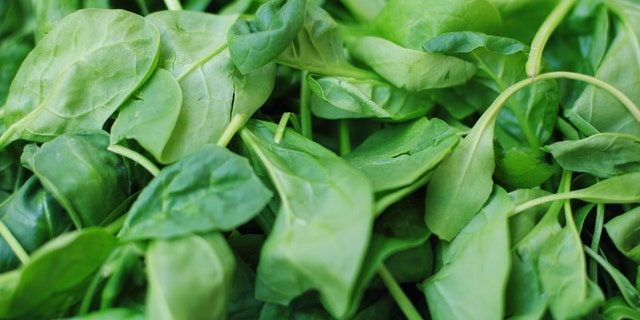
Spinach, kale and collard greens are all examples of dark leafy greens that have a positive impact on your heart health. (iStock )
2. Olive oil
Incorporate olive oil into your recipes when you’re able to in order to keep your heart strong.
Erin Kenney, MS, RD, registered dietitian and CEO of Nutrition Rewired, recommends putting olive oil into your salads or adding to homemade hummus as opposed to just heating it and using it to cook.
Olive oil is full of antioxidants, polyphenols and vitamins, all of which are good for your heart, says Kenney.
SURPRISINGLY HEART-HEALTHY FOODS
3. Avocados
No matter how you eat your avocados, they assist in improving your heart health.
Mash them for your favorite homemade guacamole recipe or spread them over your morning toast and receive the same nutritional benefits.
Amy Adams, RDN, LDN, says that avocados are a great source of monounsaturated fats plus potassium and magnesium.
All of these things, Adams said, are good for keeping a healthy blood pressure.
4. Berries
Berries are sweet, refreshing and contain lots of vitamins, minerals and antioxidants.
Though eating more fruit in general has a positive impact on heart health, according to Kristi Ruth, RD, LDN, blueberries are at the top of the list when it comes to heart healthy fruits. Blueberries are high in antioxidants, including anthocyanin, which is very good for the heart.

There are many fruits that are good for heart health, but blueberries are one of the best. (Fabian Sommer/picture alliance via Getty Images)
5. Beans
What food lowers cholesterol, blood pressure, inflammation and helps with digestive wellness? Beans.
Beans, according to Kujawaski, are great for the heart, mainly because of the high fiber content. They also contain plenty of vitamins, minerals and phytochemicals.
6. Salmon
Did you know that high-fat fish such as salmon can decrease your risk of death by cardiac arrhythmias? Cardiac arrhythmia is an irregular heartbeat that can lead to death.
The omega-3 fats that are found in fish reduce inflammation, says Kenney. She recommended eating two to three servings of high-fat fish per week, which includes salmon, but also herring, anchovies or mackerel.
If fish isn’t your cup of tea, fish oil supplements are also a good option that can provide similar benefits.
EDUCATE YOURSELF ABOUT HEART DISEASE AND PARTICIPATE IN WEAR RED DAY DURING FEBRUARY, AMERICAN HEART MONTH
7. Whole grains
Whole grains are great for heart heath. Whole grains are also fairly easy to incorporate into your diet since they can be consumed so many different ways.
You can do so by switching to whole grain pasta, brown rice or wheat bread.
Kristin Gillespie, MS, RD, LD, adviser for Exercisewithstyle.com, said whole grains have the opposite impact on your body that refined carbohydrates do.
Refined carbohydrates increase the risk of heart disease, while whole grains protect the heart.
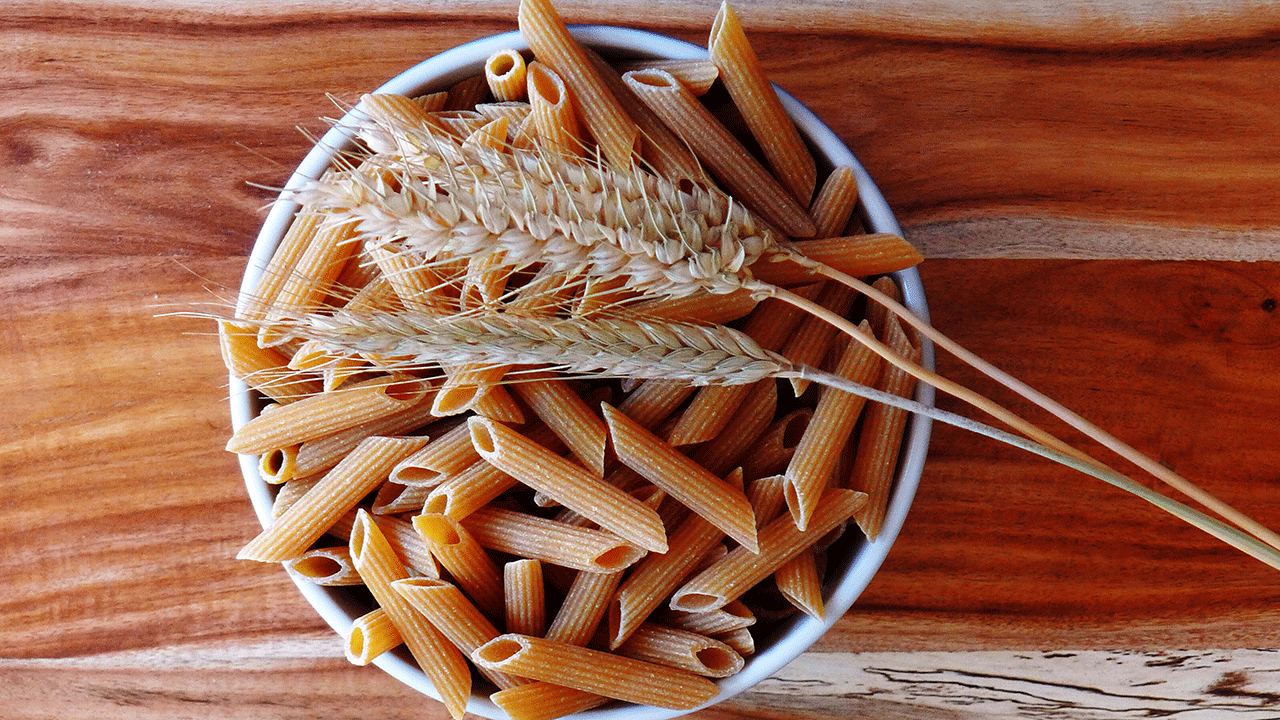
Making some switches to whole grain products, like whole grain pasta and wheat bread, can help protect your heart. (Chapeaux Marc/AGF/Universal Images Group via Getty Images)
8. Walnuts
What makes walnuts stand out among other nuts in terms of heart health is their high percent of omega 6, omega 3 and polyunsaturated fats, according to Adams.
Whether you eat these on their own, or mixed with other nuts, trying to incorporate walnuts into your daily food intake can have a good impact on your heart health.
THE WORST FOODS FOR HEART HEALTH, ACCORDING TO EXPERTS
9. Flaxseed
Flaxseed is a great source of omega-3, according to Ruth, who also said it is high in fiber and lignans. Both lower the risk of cardiovascular disease.
If you are stumped on how you can incorporate flaxseed into your diet, mix it into your oatmeal or blend it into a smoothie.
10. Grapes and grape juice
The Concord grape used for 100{2c3a8711102f73ee058d83c6a8025dc7f37722aad075054eaafcf582b93871a0} grape juice has polyphenols, which has been associated with improved blood flow.
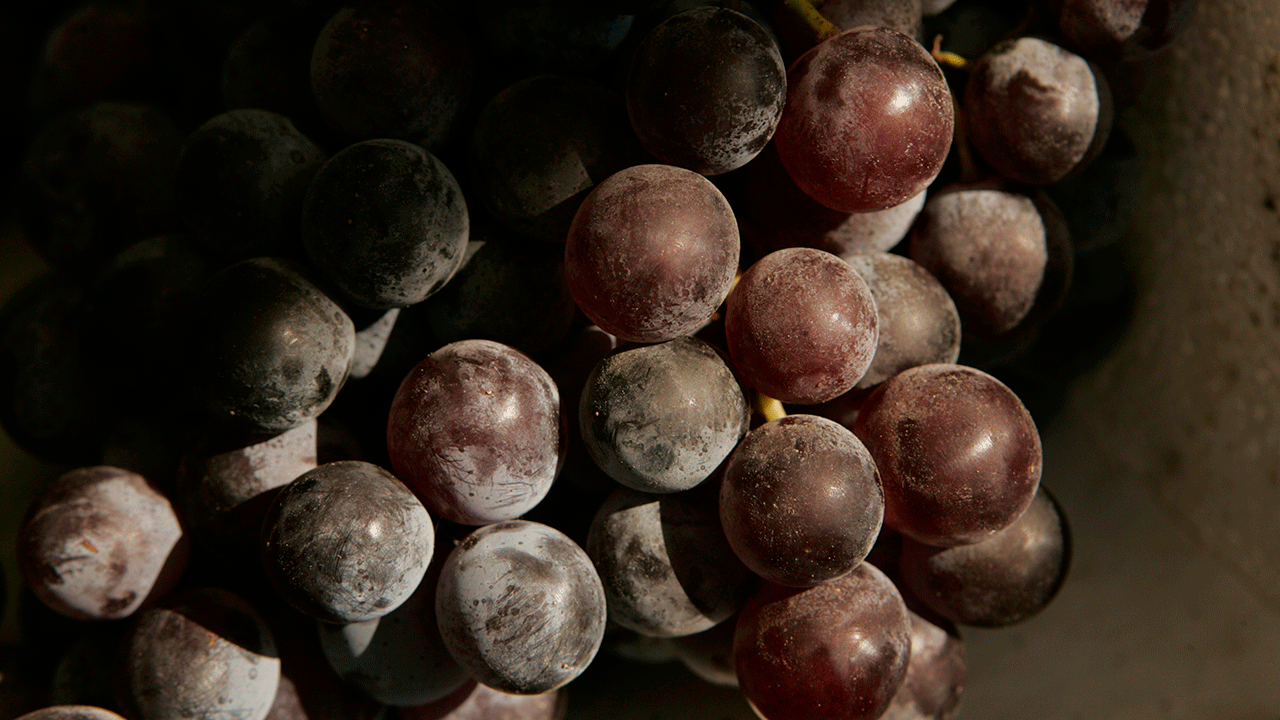
You can get lots of health benefits through sipping on some grape juice. (Anne Cusack/Los Angeles Times via Getty Images)
Simply drinking grape juice with breakfast is an easy, juicy way to assist in a healthy heart.
11. Papaya
Papayas could have a major positive impact on health.
They are high in lycopene which shows protective activity against the risk of heart attacks, among other things.
Papaya can be added to smoothies, on top of salad or on a yogurt parfait.
CLICK HERE TO SIGN UP FOR OUR LIFESTYLE NEWSLETTER
12. Dark chocolate
Chocolate can be very good for you when enjoyed in moderation, of course.
Dark chocolate, specifically, contains numerous health benefits, including lowering your risk of both heart disease and diabetes, according to Mayo Clinic. Dark chocolate also helps prevent blood clots, improves memory and lowers cholesterol, according to the site.
PUMPKIN BREAD WITH DARK CHOCOLATE CHIPS AND ALMOMDS: TRY THE RECIPE
13. Almonds
Almonds are filled with monounsaturated fats and fiber, which help protect against heart disease, according to Healthline.
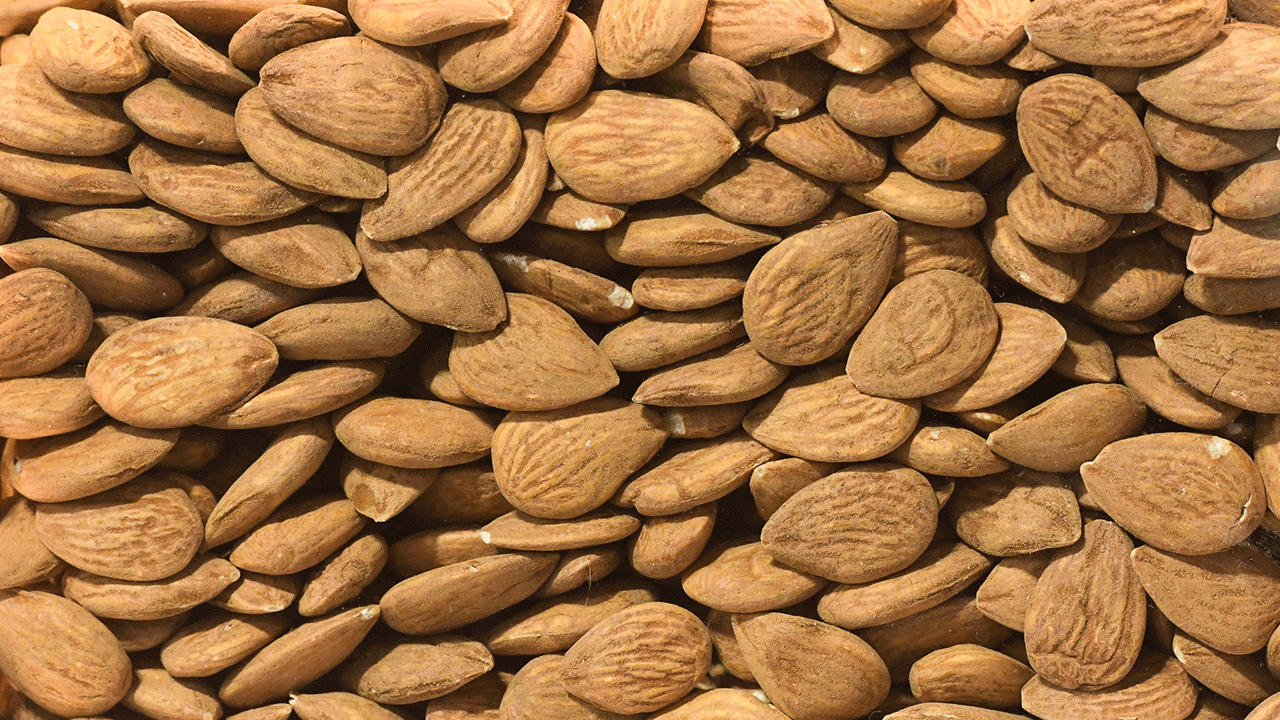
Almonds are high in monounsaturated fats and fiber, which help lower your risk of getting heart disease. (Lorenzo Di Cola/NurPhoto via Getty Images)
While almonds are great for your health, consume in moderation if you are trying to lose weight, as they are also very high in calories.
14. Potatoes
Potassium helps to lower your blood pressure and potatoes are full of it, according to health.com.
Potatoes are also high in fiber, so including them in your diet could lower your risk of heart disease.
CLICK HERE TO GET THE FOX NEWS APP
15. Pomegranate
Pomegranates have lots of polyphenols and anthocyanins that assist in keeping a healthy heart, according to health.com.
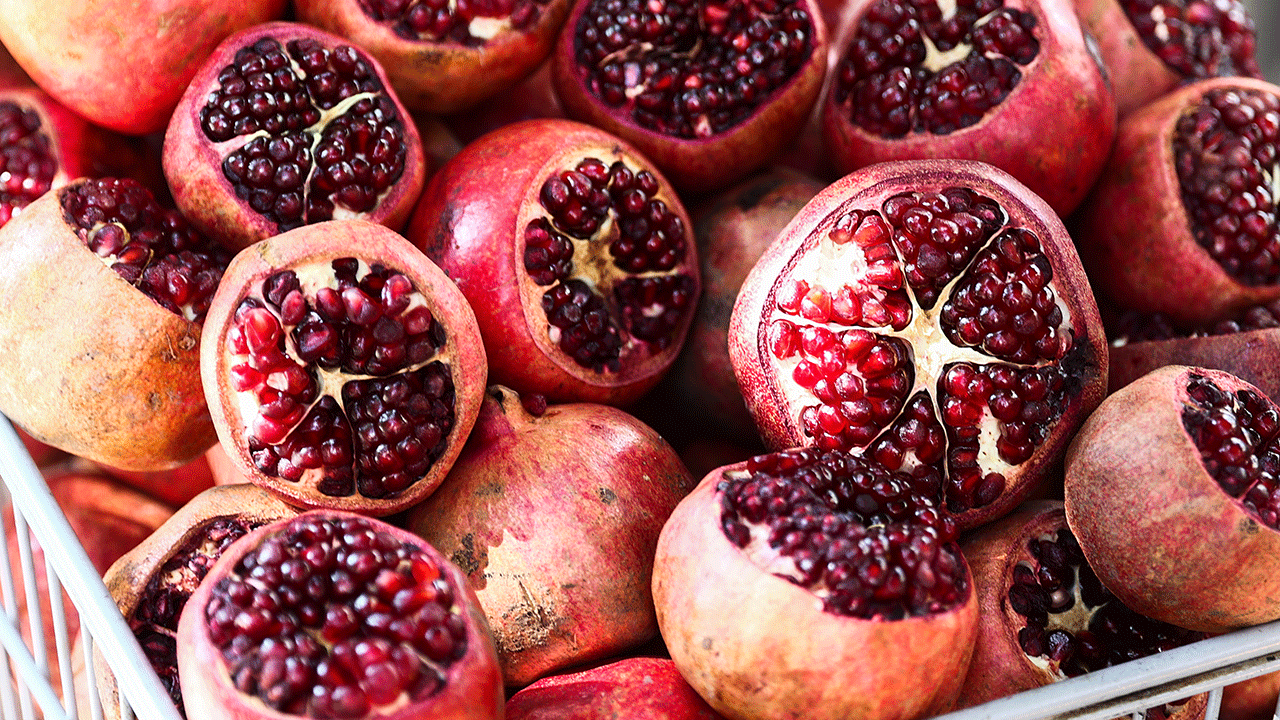
Pomegranate seeds can be added to smoothies, salad or even in an alcoholic drink. (Jakub Porzycki/NurPhoto via Getty Images)
Some ways to add pomegranate seeds to your diet are by mixing them into smoothies or even in cocktails like sangria.
Add them to your salad or use them to top off your yogurt.
Of course, you can also eat the seeds as is when removed from the peel.






